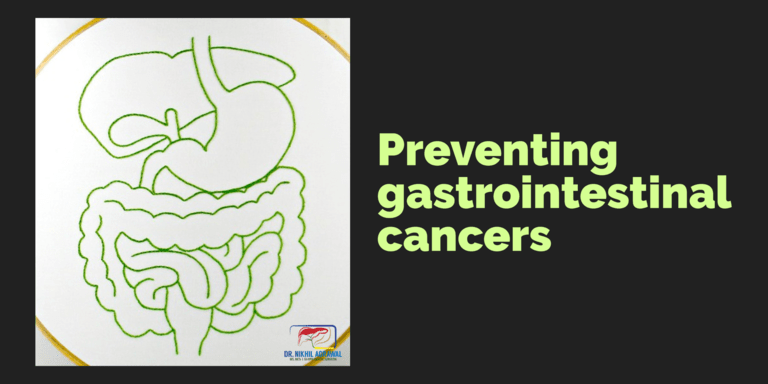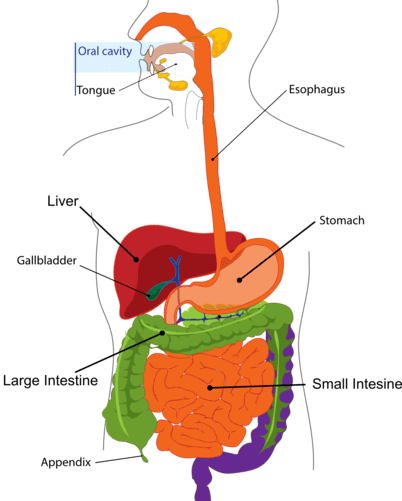Gastrointestinal cancers and eight tips to prevent them

It pains me to see patients with incurable cancers. Any one of us can get these cancers, some of us are at high risk while some at a lower risk. Wouldn’t it be best if no one developed cancer? Though we cannot eliminate the danger, we can reduce it. Let's look at ways to reduce our risk of getting them.
Gastrointestinal cancer includes cancers of the oesophagus (food pipe), stomach, colon and rectum (large intestine), gallbladder, bile duct, pancreas, liver, neuroendocrine tumours and gastrointestinal stromal tumours (GISTs). Gastrointestinal cancers as a group are the most common cancers worldwide. Overall they cause more cancers and more deaths from cancer than any other system in the body. For example, one of the GI cancers, colon cancer will affect one in every twenty individuals. GI cancers have a poor outcome if not picked up early and treated appropriately.

To protect our delicate and vital gastrointestinal organ nature has encased them inside a protective case of abdomen and chest. It guards these organs against injury but delays the presentation of any disease affecting these organs. Symptoms are our body’s way of alerting us that something is wrong. Each GI cancer presents with its distinctive signs and symptoms. Unfortunately, these symptoms often occur when it’s already too late. Many of these symptoms also occur in mild to moderate common ailments, which affect us from time to time. The likelihood of a minor disease, causing symptoms is much more. It is less likely that your symptoms are because of cancer. The result is that we diagnose these cancers at an advanced stage most of the time.
The outcome of the treatment of these cancers depends on the stage in which we detect them. They tend to spread in the body. If diagnosed before they have spread to the distant organs we can cure them with surgery and multimodal treatment. But if detected in an advanced stage, the outcome is likely to be dismal. Since diagnosing them in the early stage is difficult, it would be in our best interest to reduce our chances of getting them as much as possible.
How do I reduce my risk of gastrointestinal cancers?
If we adopt a healthy lifestyle and do things listed below, we can lower our risk of developing these cancers.
Eat a healthy diet
Diet plays a vital part in our wellbeing. A healthy diet is essential for maintaining our health. Eat a variety of different fruits and vegetables. Consume whole grains and beans as much as possible, while avoiding processed food. Limit your sugar and salt intake. Eat a moderate amount of fats and oils.
Maintain a healthy weight
The world today is suffering from an obesity pandemic. Excess weight is the cause of many GI cancers like those of colon, pancreas and liver. Achieving and maintaining a healthy weight helps in the prevention of GI cancers. To know the ideal weight for you, calculate your BMI (body mass index; search online for BMI calculator). Maintain your BMI below 25.
Regularly exercise
Regular exercise is one of the vital elements of a healthy life. It lowers the risk of various cancers including colorectal, oesophageal, liver and stomach cancer. The exercise decreases the risk by reducing body weight, modulating hormonal levels, and boosting the immune system.
Avoid tobacco
Tobacco consumption in any form has been one of the major causes of cancer worldwide. Quitting tobacco is one of the best things you can do to reduce your cancer risk.
Limit alcohol
All alcoholic drinks cause cancer. Among GI cancers, they cause liver, oesophageal and colorectal cancer. By limiting your alcohol intake, you can reduce your chances of getting these cancers.
Get vaccinated
Hepatitis B is one of the major causes of liver cancer. By vaccinating yourself against hepatitis B, you can easily protect yourself from liver cancer.
Sleep long enough
The link between lack of sleep and cancer has never been conclusively proven. In a smartphone-driven world, sleep deprivation is rampant. A good night’s sleep contributes immensely towards maintaining a healthy life.
Get screened for colorectal cancer
Screening tests help us in detecting early cancers in apparently healthy individuals. In this, we do tests on individuals at high risk of getting particular cancer. For example, individuals over 45 years of age or having a family history of colorectal cancer should undergo screening for colorectal cancer. If eligible for screening, then getting yourself screened is an important thing you can do for a subsequent cancer-free life.
Stay alert! Stay healthy!
Happy living!


